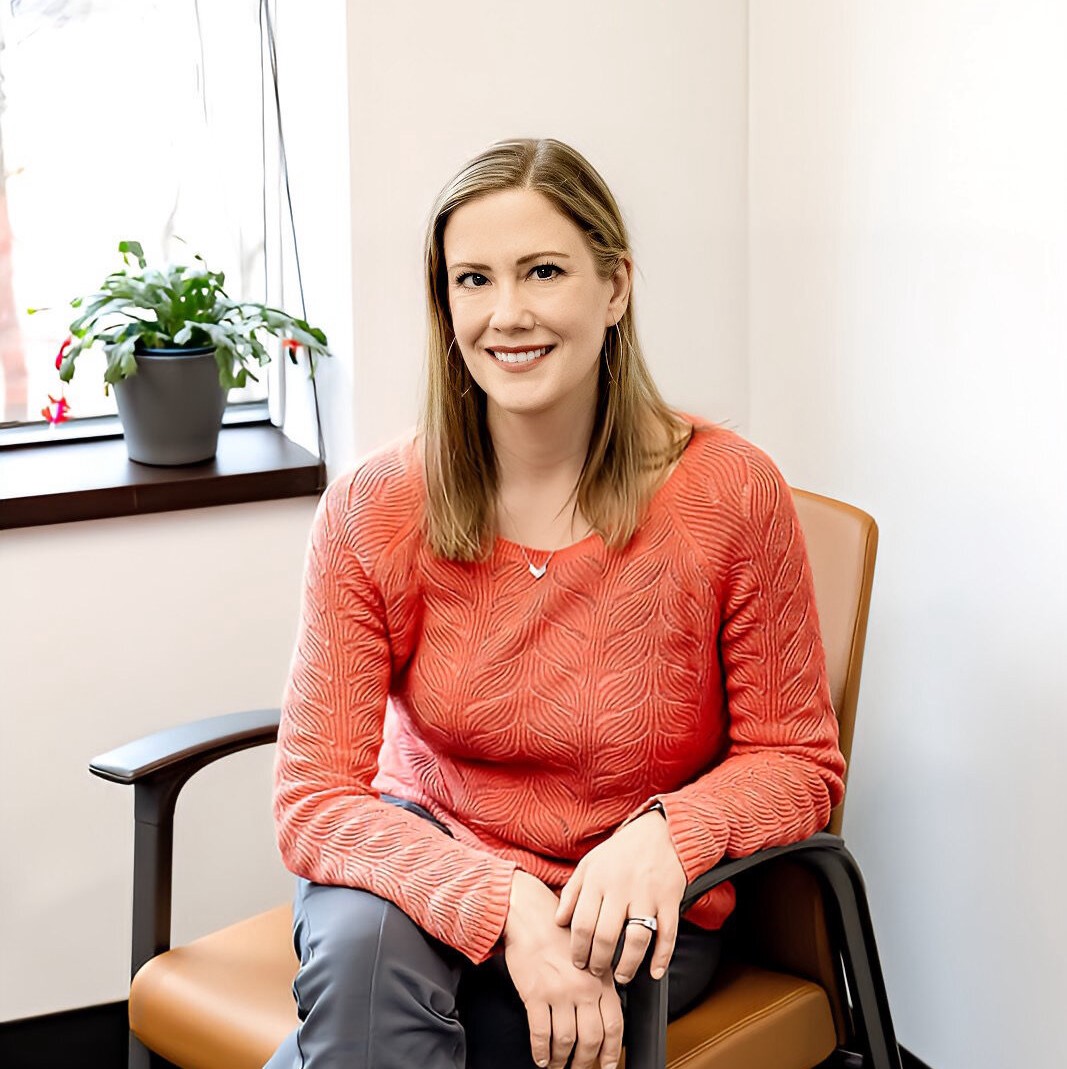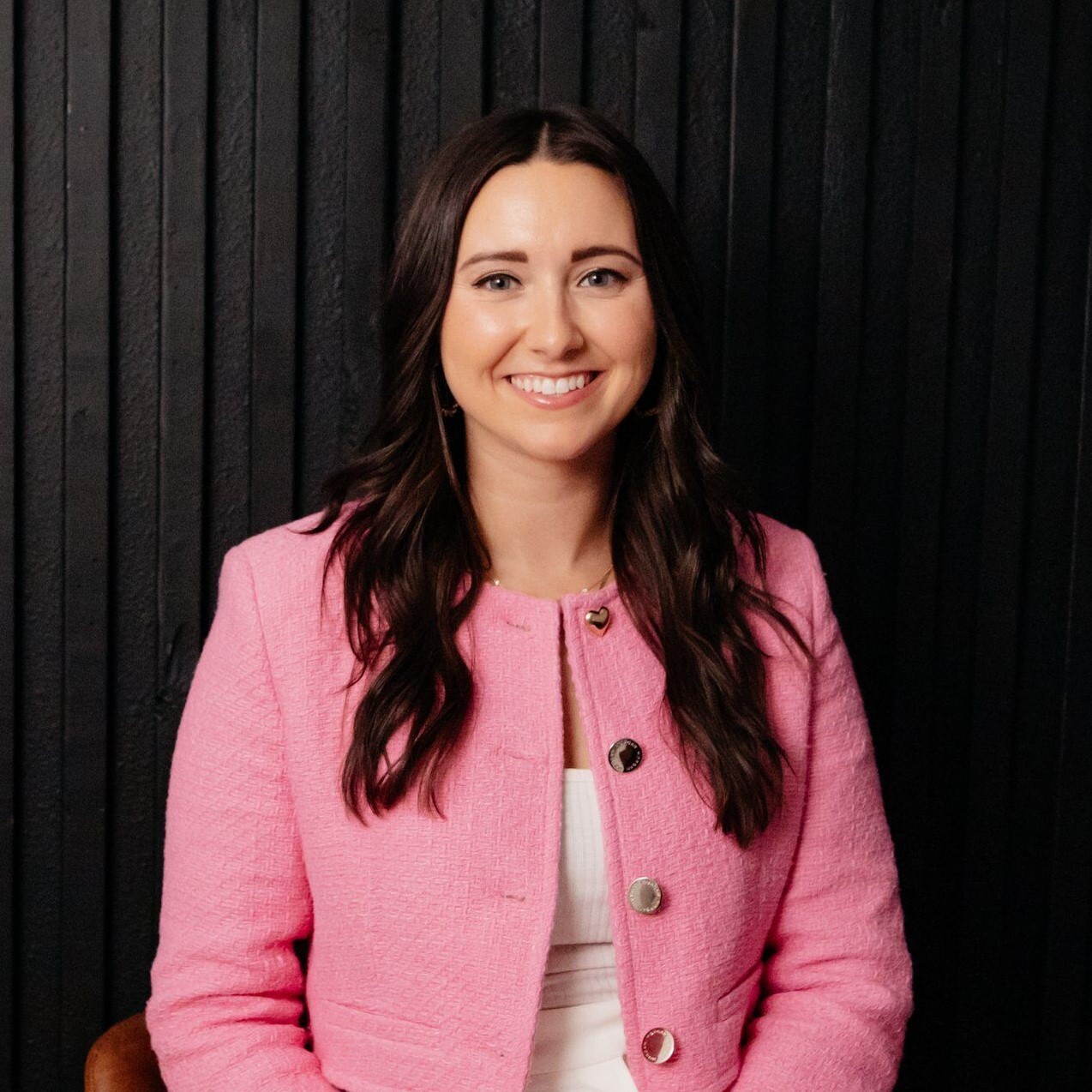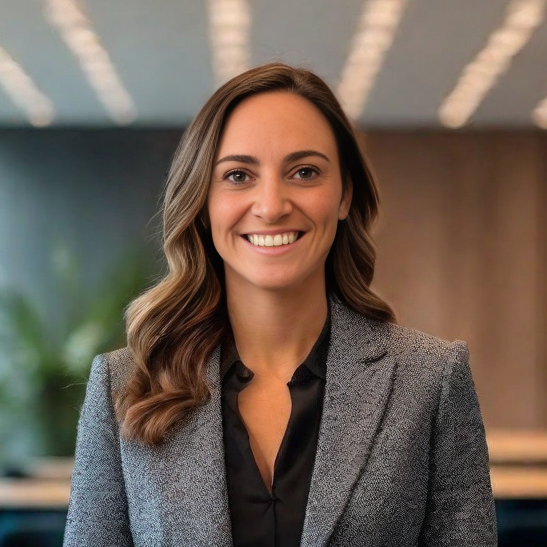
Bethany Hansen, PT, DPT
Bethany Hansen, PT, DPT
Bethany Hansen—Endometriosis Physical Therapist
Summary: Bethany Hansen is a dedicated endometriosis physical therapist based in Edina, Minnesota, committed to providing compassionate, patient-centered care through her practice, Bethany Hansen, LLC. Bethany Hansen, PT, DPT, emphasizes a multidisciplinary approach that combines pelvic floor physical therapy with supportive treatments tailored to each patient’s unique needs. Her expertise includes manual therapy techniques such as deep tissue mobilization, trigger point release, myofascial release, visceral mobilization, and internal pelvic floor work. She also integrates exercise, nervous system calming strategies and collaborates with other healthcare providers like endometriosis excision surgeons, functional medicine dietitians, and acupuncturists. Her holistic, team-based philosophy aims to optimize pain relief, restore function, and improve quality of life for patients navigating the challenges of endometriosis. Patients appreciate her warm, attentive approach and personalized treatment plans that empower them throughout their healing journey.
City: Edina, Minnesota, USA
Visit types: Home, Virtual
Spoken languages: English
Interpreting services for other languages: No

Amelia May, PT, DPT
Amelia May, PT, DPT
Amelia May—Endometriosis Physical Therapist
Summary: Amelia May is a compassionate endometriosis physical therapist based in Denver, Colorado, offering personalized, one-on-one care at Sonder Pelvic Therapy & Wellness. She provides personalized, one-on-one care grounded in a whole-body, movement-focused approach to help individuals with endometriosis reduce pain, restore function, and feel confident in their bodies again.
With a strong orthopedic background integrated seamlessly into pelvic floor care, Amelia specializes in supporting active lifestyles—from runners and lifters to Pilates enthusiasts. Her treatment plans are individualized and evidence-informed, often incorporating functional dry needling, cupping, visceral mobilization, myofascial release, internal pelvic floor work, and customized home programs.
City: Denver, Colorado, USA
Visit types: Home, Virtual
Spoken languages: English
Interpreting services for other languages: No

Dr. Jill Ingenito
Dr. Jill Ingenito
Dr Jill Ingenito – Endometriosis Specialist
Summary: Dr Jill Ingenito is an experienced endometriosis specialist based in Centennial, Colorado, dedicated to providing comprehensive, patient-centered care. Dr Jill Ingenito approaches endometriosis as a multifactorial disease, considering key theories such as retrograde menstruation, coelomic metaplasia, immune dysfunction, and genetic factors. This broad understanding guides her personalized treatment plans, which include excision surgery and tailored hormonal therapies like combined oral contraceptives, progestins, and GnRH modulators. Dr Jill Ingenito emphasizes a multidisciplinary approach, integrating pelvic floor therapy, dietary changes, and pain management to address persistent symptoms. For ongoing pain after surgery, she recommends NSAIDs, neuromodulators, and low-dose naltrexone to reduce inflammation and nerve-related discomfort. Her patient-focused philosophy prioritizes shared decision-making and holistic care to improve quality of life. With a commitment to staying current on emerging research, Dr Jill Ingenito combines expertise and compassion to support women through every stage of their endometriosis journey.
City: Centennial, Colorado, USA
Philosophy of Endometriosis Care: Endometriosis is a complex condition with multiple proposed theories of origin, and I approach its treatment with this multifaceted nature in mind. Here are the key theories I consider and how they influence my approach:
1. Retrograde Menstruation Theory: Endometrial-like tissue flows backward through the fallopian tubes into the peritoneal cavity during menstruation, where it implants and grows.
Influence on Treatment: This theory underscores the importance of hormonal suppression to reduce menstrual flow and mitigate disease progression. Treatments like hormonal contraceptives, progestins, and GnRH modulators can help control symptoms and prevent recurrence.
2. Coelomic Metaplasia Theory: The peritoneal lining transforms into endometrial-like tissue due to genetic or environmental factors.
Influence on Treatment: This theory supports the need for a holistic approach, including addressing potential environmental triggers and reducing inflammation through lifestyle modifications, diet, and anti-inflammatory therapies.
3. Stem Cell Theory: Stem cells from the bone marrow or endometrium migrate to ectopic locations and differentiate into endometrial-like tissue.
Influence on Treatment: This theory emphasizes the potential role of immune system modulation and ongoing research into regenerative therapies.
4. Immune Dysfunction Theory: Impaired immune surveillance allows ectopic endometrial-like tissue to implant and persist.
Influence on Treatment: I focus on optimizing the immune environment through anti-inflammatory strategies, adjunctive therapies (e.g., low-dose naltrexone), and encouraging overall immune health.
5. Genetic and Epigenetic Theories: A genetic predisposition and epigenetic modifications may make certain individuals more susceptible to developing endometriosis.
Influence on Treatment: Understanding that endometriosis is likely influenced by heritable factors helps me counsel patients on recurrence risk and tailor long-term management strategies.
6. Lymphatic and Hematogenous Spread Theory: Endometrial-like cells spread through the lymphatic system or bloodstream, explaining distant lesions.
Influence on Treatment: This theory highlights the importance of a systemic approach to the disease, particularly in cases with extra pelvic manifestations.
My Approach:
Excision Surgery: Recognizing that excision addresses the visible and tangible lesions of endometriosis regardless of origin, I prioritize this approach for definitive treatment.
Multidisciplinary Care: I integrate pelvic floor physical therapy, dietary interventions, pain management strategies, and psychological support to address the systemic impact of the disease.
Patient-Centered Care: I emphasize shared decision-making, tailoring treatment plans based on the severity of symptoms, goals, and individual patient needs.
Ongoing Education and Research: Staying updated on emerging theories and treatments is critical to providing the most effective care.
By addressing endometriosis as a multifactorial condition, I aim to provide comprehensive and compassionate care that not only alleviates symptoms but also improves the overall quality of life for my patients.
What type of surgery do you perform for endometriosis: Excision
Medication: In my practice, I incorporate a range of medications tailored to the individual needs of patients with endometriosis, always balancing symptom relief with long-term management goals. Here’s an overview of the medications I use and how I recommend them:
I frequently use hormonal therapies. Combined oral contraceptives (COCs) are a first-line option for mild to moderate symptoms or as a trial before more invasive interventions. These are used continuously or cyclically to suppress ovulation and reduce menstrual flow, which helps decrease inflammation and pain by reducing hormonal cycling. Progestins, such as norethindrone acetate, dienogest, or medroxyprogesterone acetate, are another option, particularly for patients who cannot tolerate estrogen or prefer non-estrogen approaches. These can be delivered orally, via injection (Depo-Provera), or intrauterine (e.g., Mirena IUD), thinning endometrial tissue and suppressing ovulation to reduce lesion activity and pain. GnRH agonists and antagonists, such as leuprolide (Lupron) or elagolix (Orilissa), are often used for moderate to severe symptoms or as an adjunct to surgery. These induce a hypoestrogenic state and are used short-term due to side effects like bone density loss, often combined with add-back therapy to mitigate these side effects. For long-term management, especially for those seeking contraception, levonorgestrel-releasing IUDs (e.g., Mirena or Kyleena) provide localized progestin release, reducing heavy bleeding and pelvic pain with minimal systemic effects.
Approach to Persistent Pain After Surgery: I often recommend NSAIDs, such as ibuprofen or naproxen, for acute pain or in combination with other therapies. These are most effective when taken around the clock during symptom flares to reduce prostaglandin-mediated inflammation and pain. Neuromodulators like gabapentin or amitriptyline are used for neuropathic or chronic pelvic pain that persists despite hormonal or surgical management, typically initiated at low doses and titrated as needed. Low-dose naltrexone is another option for chronic pain and inflammation, taken nightly with patient education about its gradual onset. For bowel-related symptoms, I may use antispasmodics like dicyclomine as needed during symptom flares to reduce smooth muscle spasms.

Michele Forsberg PT, MS
Michele Forsberg, PT, MS
Michele Forsberg – Endometriosis Physical Therapist
Summary:
With over 25 years of experience as a physical therapist, Michele’s first career as a professional dancer ignited her fascination with the body and movement. She has studied with some of the most respected pioneers in manual physical therapy, including completing a Clinical Mentorship in Diane Lee’s renowned Integrated Systems Model. This extensive training foundation, combined with her eclectic approach to manual therapy, has made her sought after by clients from other states and internationally.
Michele established a private practice in NYC for 6 years before coming to Longmont, CO, to open Align PT. As the founder and creator of FeminEnergy program for women and the Thriving With Endo Functional Wellness Program, she brings both clinical expertise and a uniquely personal perspective to her practice. Having navigated endometriosis both personally and as a mother of a daughter with the condition, she deeply understands the complex needs of endo patients and all patients with chronic pelvic pain and digestive issues.
Michele’s integrated holistic approach incorporates visceral, myofascial, cranial, neural, and biomechanical treatment techniques, addressing the interconnected physical, emotional, and systemic aspects of endometriosis. Her specialized expertise allows her to recognize and address the unique scar tissue and adhesion patterns characteristic of endometriosis, providing targeted treatment that goes beyond symptom management. As a fierce advocate for endometriosis patients, Michele ensures that every patient feels truly seen and fully heard throughout their healing journey. At Align PT, she serves local patients in the Longmont area and also offers an intensive out-of-town program for patients who don’t have specialized endometriosis care available near them. She has personally trained her dedicated team to deliver the same high standard of integrative care.
Visit types: Office/Hospital.
Spoken languages: English
Interpreting services for other languages: No
Philosophy of care and typical treatment strategies: My approach to treating endometriosis and chronic pelvic pain is grounded in compassion, collaboration, and creating a safe healing space where every patient feels truly heard and valued. I believe that you are the expert of your own body and experience, and my role is to partner with you in your healing journey.
Together, we’ll develop a personalized treatment plan that honors your unique needs, goals, and comfort level using my holistic manual approach. Every treatment decision is made collaboratively, ensuring you feel empowered and informed throughout the process. I recognize that many endometriosis patients have experienced medical trauma or dismissal, so creating an environment of trust, respect, and gentle care is fundamental to everything we do. Your voice, your pace, and your comfort are always prioritized as we work together toward your healing.

